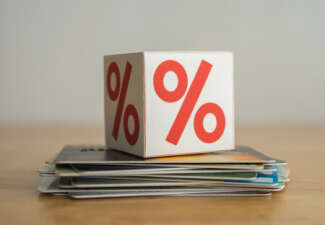The content on this page is accurate as of the posting date; however, some of the offers mentioned may have expired.

Emergency expenses can throw a monkey wrench into your day especially if you don't have any savings or even a low or no-interest credit card to cover it. This is the case for one in five Americans who, according to a new study, don't have any savings on hand to cover an emergency expense, whether that’s a car problem, a medical issue or a home repair. When asked if they had at least $500 in the bank to cover unexpected expenses, 31% said no.
The study was conducted by Harris Polls for HomeServe, a company specializing in home repair solutions. While they found some were unprepared for unexpected expenses, they also discovered that many are well prepared for an emergency or two, with 26% having $8,000 or even more socked away for these expenses.
Age matters when saving for emergencies
Getting older can make you wiser so it's not surprising that individuals who are 65 and up tend to have the most cash put away for unexpected expenses, so much so that nearly half have $8,000 or more on hand.
What about Millennials? In this case, they are more likely (45%) than the other generations to have $1,000 or less on hand, when just 24% of people 35 and up were in the same boat. This data indicates that there is a noteworthy divide in the generations when it comes to saving for emergencies.
When asked what kinds of emergencies could be an issue for them over the coming year, 52% said that their car might have problems or another vehicle could be on the horizon. Medical expenses are definitely on people's minds too, with 49% indicating that there could be expenses in this area coming down the road too.
Yet home repairs are also on the list of anticipated emergencies, with 42% noting that something going askew in their home could cost them this year too. But when the study dug in deeper, they found that 71% actually believed that home repairs would probably not be an issue for them.
But what if an emergency did hit? If so, 48% of homeowners have saved money just in case, and let interviewers know they had $5,000 or more saved - a 20% upswing from 2015.
What if you had some extra money?
In the study, they asked people what they would do if they had an extra $1,000 on hand. For 25% paying down their credit card or a loan was the top pick, while 19% would save the extra money and 16% would use it to go traveling.






